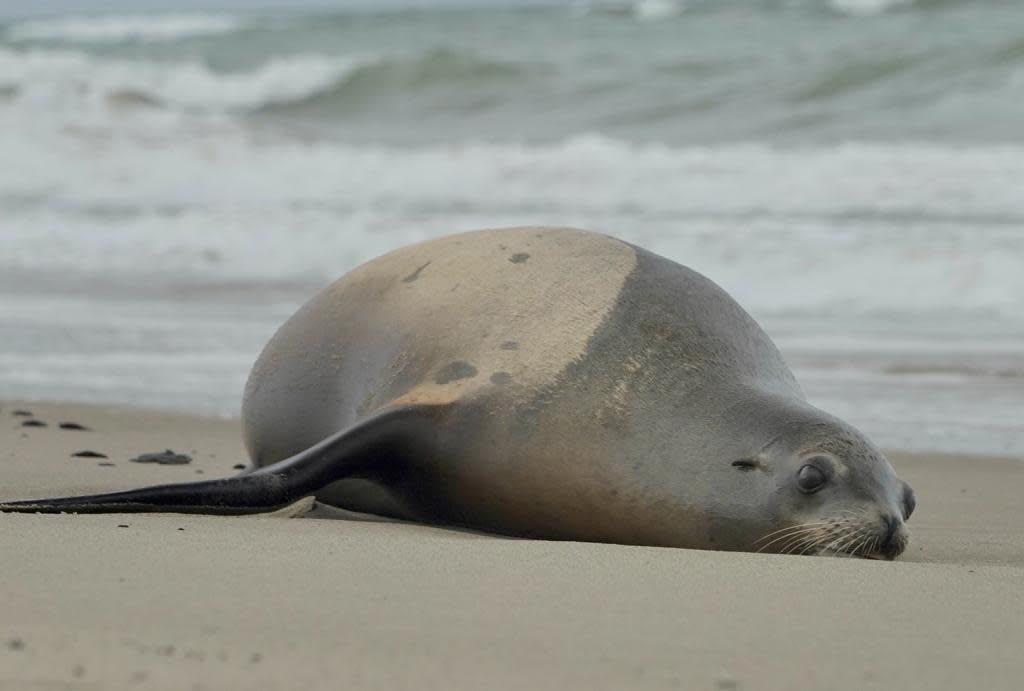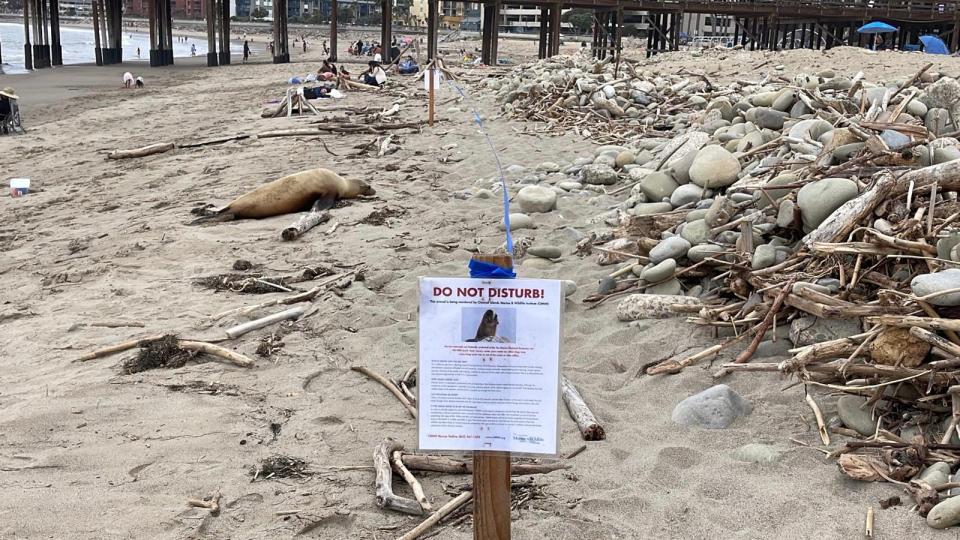Hundreds of sea lions inundate rescue centers on California coast

Wildlife officials warned Friday that rescue and rehabilitation centers have been inundated as hundreds of sick sea lions continue to show up along the Southern California coast.
Officials from the National Oceanic and Atmospheric Administration called it a large-scale stranding event – one they suspect is because of domoic acid toxicity.
The sick and dead wildlife started showing up in Ventura and Santa Barbara counties several weeks ago. The numbers have since increased and spread to Los Angeles and Orange counties.
More than 100 dolphins also have died in the past several weeks, said Justin Viezbicke, NOAA's California marine mammal stranding coordinator.
The rapid growth of algae can cause elevated levels of a neurotoxin called domoic acid that can be harmful for seabirds and mammals. Seasonal outbreaks are common, but more widespread events can involve hundreds of animals.
"Since I've been studying this for over 20 years, it definitely is the most severe in terms of marine mammal impacts over a geographic range of central to Southern California," said Clarissa Anderson, an oceanographer and director of the Southern California Coastal Ocean Observing System.
Rehab centers fill
As of Friday, officials had not yet confirmed domoic acid as the cause but said symptoms are consistent with the toxin. Test results were expected early next week.
The sick sea lions can become disoriented and agitated. Symptoms include head bobbing, foaming at the mouth, seizures and a loss of motor skills.

Rescue groups are taking in as many animals as they possibly can, Viezbicke said. Even with those efforts, there's a good chance that beach-goers will come across a sick sea lion over the weekend. Rehab facilities are all at maximum capacity, he said. With no other option, some animals are left on beaches.
Authorities asked people who do encounter a marine mammal to keep a safe distance as far away as possible. Approaching them can put people and pets in a much more dangerous situation, they said. Several incidents of sea lion bites have been reported.
"This is a neurotoxin," Viezbicke said. "They are not acting normally, and so we really want to try to avoid those human-animal interactions."
Giving the animals more space also may help them recover, he said. He also urged the public to report any sick or stranded marine mammals by calling the NOAA hotline at 866-767-6114.

Stretched thin
Viezbicke asked the public to have patience when calling groups or when they see rescuers on beaches.
"We're stretched super thin and really, these folks are doing everything that they can," he said.
Channel Islands Marine & Wildlife Institute, which rescues marine mammals in Ventura and Santa Barbara counties, said its volunteers have responded to over 500 sea lions showing signs of domoic acid poisoning as of early this week.
The nonprofit group called the volume of calls unprecedented – as many as 250 to 350 daily. In some cases, volunteers will put animals under observation and post signs about safety perimeters.
The group urged the public not to approach the animals, pour water on them, push them back into the water, feed or cover them.
How to help
If a stranded marine mammal is found in Ventura or Santa Barbara counties, call the Channel Islands Marine & Wildlife Institute rescue hotline at 805-567-1505 or make a report online at cimwi.org/online-rescue-form. If possible, the group asked people to include photos of the animal on the form.
Elsewhere in California, people can call the NOAA hotline at 866-767-6114.
The public should not try to assist the animal. Experts say to not disturb, move, touch or feed the animal. Doing so can be dangerous and violate federal law.
Domoic acid does not affect humans unless they consume it in contaminated food. The public can get more information and current advisories by calling the California Department of Public Health's biotoxin hotline at 1-800-553-4133.
Cheri Carlson covers the environment and county government for the Ventura County Star. Reach her at cheri.carlson@vcstar.com or 805-437-0260.
This article originally appeared on Ventura County Star: Hundreds of sick sea lions reported along Ventura, Santa Barbara coast

